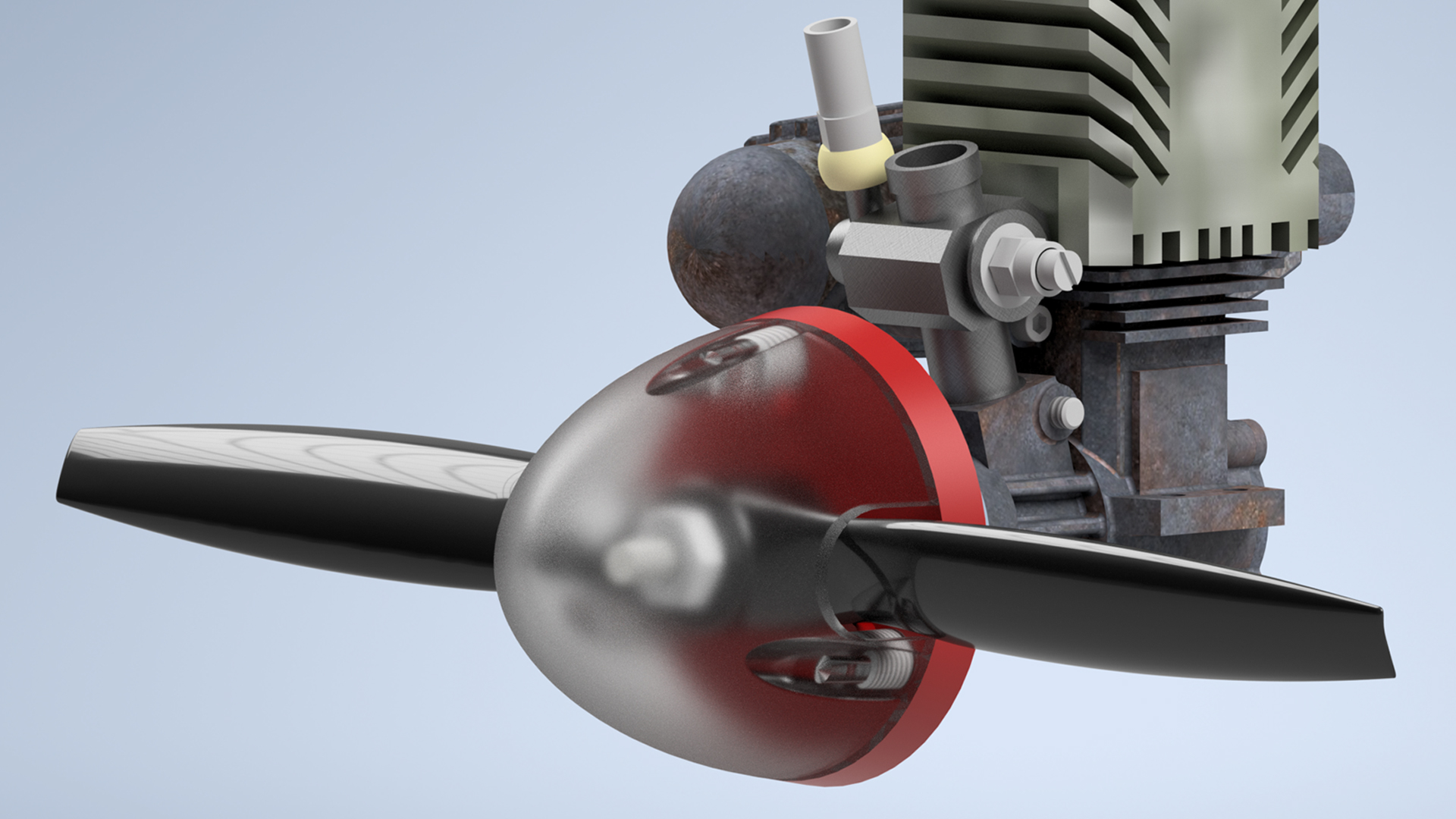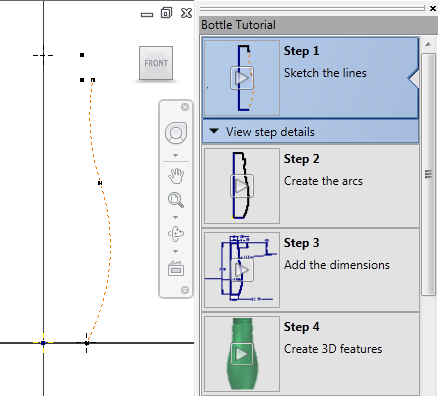

- Autodesk inventor tutorial part 2 how to#
- Autodesk inventor tutorial part 2 update#
- Autodesk inventor tutorial part 2 software#
Have a watch of this video to see this in action: There’s also a neat trick where you can easily see how variable radius fillets will affect a design dynamically.
Autodesk inventor tutorial part 2 update#
If you modify the 2D sketch the 3D sketch will update accordingly.Īutodesk Inventor has always had the ability to create variable radius fillets but in the 2012 release we have added support for G2 continuity for variable radius fillets. Select the faces you want to project your sketch to and hey presto, a 3D sketch which is associative to the 3D sketch. Here’s another really useful addition to Inventor 2012 – the ability to create a 2D sketch and then project that to create a 3D sketch across multiple faces.Īll you need to do is create a 2D sketch like this one:Īnd using the new Project to 3D Sketch tool: I like the new select tool – remember in previous releases you had the two arrows where you could cycle through the different faces, features, parts etc for selection? Well now you get a drop menu where you can highlight the exact geometry you want to select and easily select it from the list. Users can still have a locally installed help system if you don’t have web access which will contain all of the standard help files and tutorials. The Autodesk Inventor help system is now cloud based! If you select Help from within Inventor or you type a search term in to the help you will be searching the on-line Wiki based help that doesn’t just contain the normal Inventor based help content, it also contains thousands of tips, tricks, best practices, videos etc from users of Autodesk products from all over the world. The great thing about this is that you don’t have to wait to add your annotations and details onto a drawing whilst you wait for the views to be calculated.

In the background whilst you are annotating and adding detail to the drawing the views are being calculated until you get a final precise technical drawing view. The way this works is that when you place a view onto the drawing initially they are a kind of ‘draft’ view that looks similar to the final view but not quite as ‘crisp’.

If you are working with large complex datasets, depending on the specification of your workstation you might find it take a little bit of time to create the required 2D associative drawing views – not any longer! The addition of high-speed drawing views allow a user to place views on the drawing quickly and continue annotating them with dimensions, leaders, mechanical symbology etc.
Autodesk inventor tutorial part 2 how to#
Learn how to use simple features and commands.Looking for more information Ch. If you create a part file (.ipt) that contains multiple solid bodies you can now use the stress analysis tools to add loads, constraints, materials etc to analyse the stresses, strains and deformations of the design. This 9 minute view will go over how to create a part within Autodesk Inventor. Patreon is a simple way for you to contribute to the creator’s work every month/ every time they release their new work and get rewards in return.In my first Inventor 2012 What’s New article I covered a lot of new and updated technology that has been added into this year’s release, but there’s still more to come and here it is… If you find the video useful please like it and share it with your friends/colleagues and do not forget to subscribe us to get latest updates about our new uploads.ĭear Viewers if you like our work and wanted to support us, to keep continuing the good work, then become a patron of ours at ‘Patreon’ site.
Autodesk inventor tutorial part 2 software#
To watch detailed tutorials on the same software visit the following link Visit the following link to watch the basic tutorial on Autodesk Inventor by us If you have any questions about the drawings, please leave a comment. We will always try to provide good material. Autodesk Inventor Tutorial 16 How to make Exercise 931 STUDYCADCAM 4 03, 2020.



 0 kommentar(er)
0 kommentar(er)
